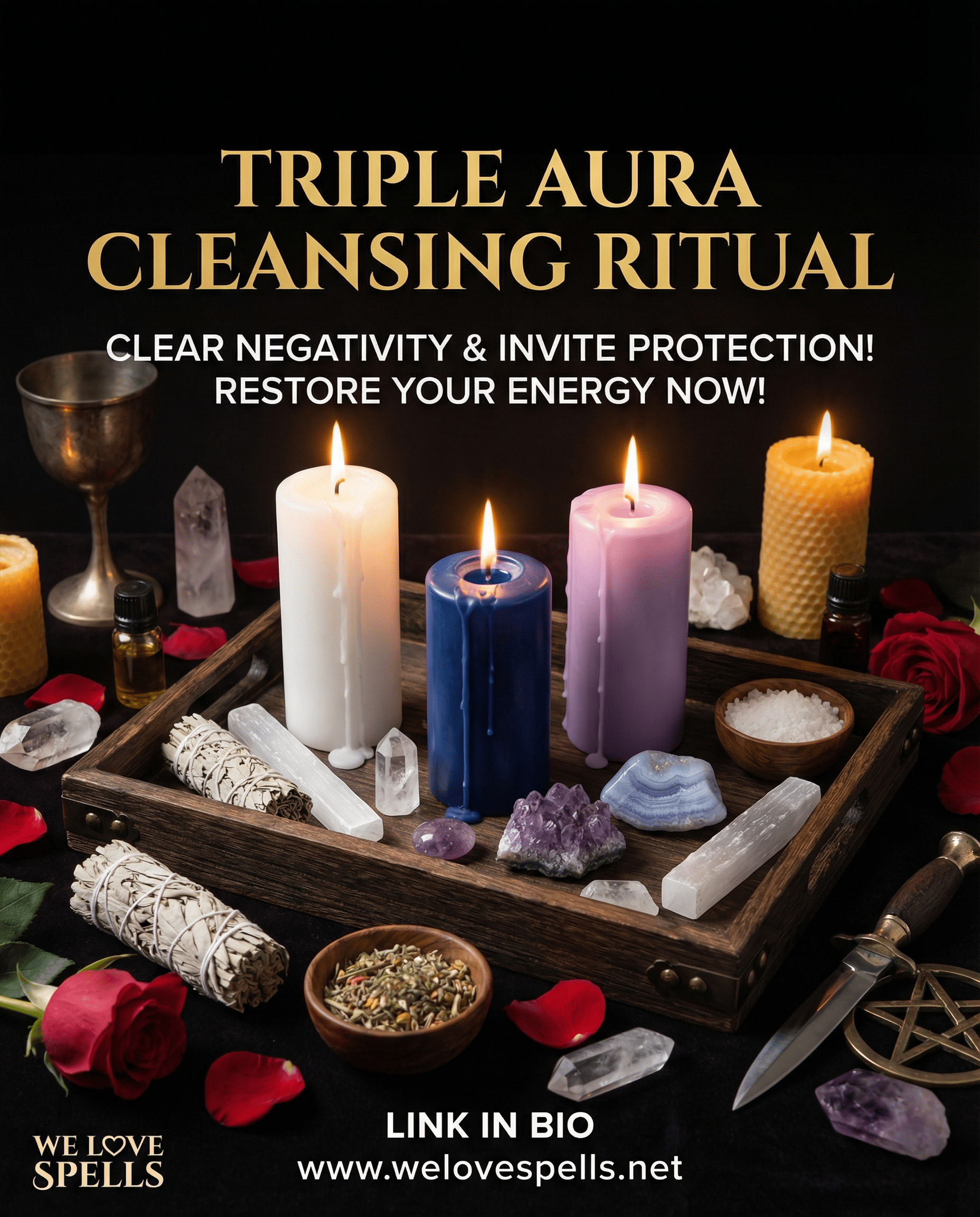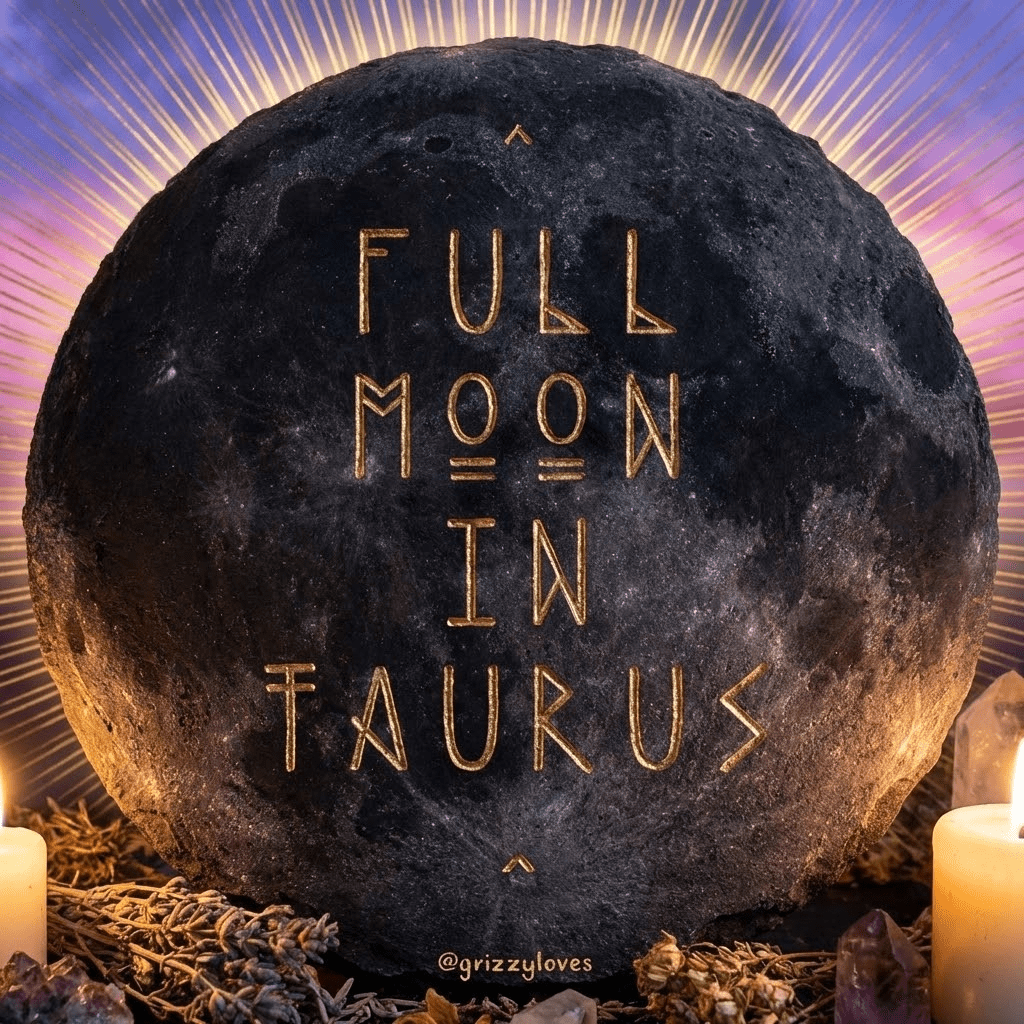Spells and Magic - Their Role in Religion
Magic vs. Spell Casting in Religion: What’s the Difference?
- 🔮 Spells are tools used to channel magical energy, while magic is the broader force behind them.
- 🌿 Different religions integrate spell-casting uniquely—Wicca, Voodoo, Hinduism, and ancient civilizations all have rich magical traditions.
- ⚡ Components like herbs, crystals, and candles amplify spell effects through elemental energies and vibrations.
- 🧘 Ethical practice in magic is essential—intention, concentration, and respect for spiritual laws matter most.
- 💗 Order customized love spells now at WeLoveSpells.net to attract love, heal a relationship, or manifest your desires.
Magic and spellwork have captivated the human spirit for millennia. But despite being closely linked, spells are not the same as magic itself. In religious and spiritual traditions, casting spells is a practical way to harness magical forces—but magic itself is a deeper flow of universal energy accessible through ritual, intent, and spiritual discipline.
Order a custom love spell today to ignite passion, attract your soulmate, or restore lost love. Choose your spell now and start your journey to transformation.
 Caption: Exploring the Sacred Role of Spells in Religion
Caption: Exploring the Sacred Role of Spells in Religion
What’s the Difference Between Spells and Magic?
While magic refers to the underlying energy or force that drives change beyond the natural realm, a spell is a structured act—composed of intentions, words, and ritual—that channels that energy.
Many spiritual practitioners view spells as a gateway to controlling or influencing elements of their lives. However, advanced magic doesn't always need spells. In traditions like Wicca and ceremonial magic, a spell is simply one of the many tools used to access deeper spiritual power.
Magic rituals often involve consistent actions and phrases, where focus and belief amplify results. This makes spell-casting one of the most accessible and powerful tools, particularly in love magic.
The Ancient Origins of Spell Work
Historically, spell-casting has roots dating back to the Celts, Egyptians, and early African spiritual traditions. The Celts, in particular, often incorporated herbs, potions, and candle rituals into spiritual celebrations and seasonal festivals. Their belief in nature as a living, breathing force allowed them to channel energy from trees, stars, and the sun into their magical practices.
This deep connection with natural forces persists in today's Wiccan practices, where the use of seasonal spells honors deities and earth cycles.
Spell Work in Modern Religious Practice
Magic didn’t vanish with the rise of organized religion—it evolved. In many modern faiths, spell-like practices continue under different names:
- Hinduism: Uses sound and mantra to realign energy and manifest outcomes—considered a form of sacred spellwork.
- Christianity: Prayers, blessings, and sacraments often function similarly to spells by invoking divine intervention.
- Voodoo: Rituals and charms are imbued with spiritual significance, using offerings and chants to channel spirit energy.
Key Elements That Make a Spell Work
To successfully cast a spell, magical practitioners often rely on six core foundations:
- Mystical Force or Energy: Often referred to as chi, prana, or mana—this is the energetic current that magic draws from in all living and inanimate things.
- Spirit Intervention: Calls upon spiritual beings that interact inside our world, acting as guides or messengers from divine realms.
- Manipulation of the Elements: Most spells work with elemental correspondences—earth for grounding, fire for action, water for emotion, air for thought.
- Meditation and Focus: Visualization strengthens the practitioner’s intent, aligning the subconscious and spiritual energies.
- Subconscious Magic: The power of belief and inner programming plays a critical role—symbols, chants, and rituals speak to the subconscious mind.
- Oneness with the Universe: Magic flows best when we align with higher forces, practicing in harmony with natural law and universal truth.
Importance of Spell Components
Every successful spell relies on carefully chosen tools that match the spell’s intent. Each item brings symbolic vibration and properties to the ritual:
- Rose quartz: Enhances love, healing, and emotional connection.
- Lavender: Promotes calm, spiritual clarity, and stress relief.
- Red candles: Call in passion, courage, and lustful desire.
For love-related rituals, powerful spell kits like the Lust for Me Love Spell or the Attract Your Soulmate Spell pair sacred ingredients with potent spiritual energy.
Ethics of Spell Casting in Religion
Not all magic is created equal. In responsible traditions like Wicca, following ethical laws is crucial. The Wiccan Rede—“An it harm none, do what ye will”—is one of the most widely respected codes in spiritual spellwork.
Intent matters. Casting a spell to cause harm or manipulate others without consent can backfire energetically and spiritually. Karma, energy balance, or divine justice may return the energy sent out.
Common Misconceptions About Spells and Magic
Let’s clear up some myths:
- “All magic is dark”: In truth, most spells are cast for love, protection, or healing—not harm.
- “Spells are instant fixes”: Real spellwork takes time, focus, and spiritual readiness. It’s not a magical vending machine.
- “Anyone can cast powerful spells with no training”: While beginners can cast basic spells, advanced work demands discipline, study, and guidance from experienced casters.
User Testimonials
⭐⭐⭐⭐⭐ “I ordered the Bring Back Lost Lover Love Spell and was absolutely amazed. My ex contacted me within a week. I didn’t believe it would work this fast!” – Sarah M.
⭐⭐⭐⭐⭐ “The energy I felt during the spell was undeniable. I’ve found someone who truly sees me thanks to the Attract Your Soulmate Spell.” – Juliana R.
⭐⭐⭐⭐⭐ “The Weight Loss Spell helped me feel motivated, lighter, and more focused.” – April L.
Ready to Begin Your Journey in Magic?
Whether you're healing a heartache, manifesting a soulmate, or rediscovering self-worth, the right spell may set the intention in motion. Start by selecting a spell aligned with your highest purpose from our curated Love Spells Collection.
Don't wait—claim your magic now. Your transformation begins the moment you believe in it.
Meet the Author: Spellcaster Belinda
With over 20 years of dedicated experience in love magic, rituals, and energy work, Belinda is a renowned spiritual practitioner at WeLoveSpells.net. Her custom-crafted spells have helped thousands of clients around the world attract love, repair damaged relationships, and reclaim power over their emotional wellbeing.
Frequently Asked Questions
What is the difference between a spell and magic?
A spell is a specific ritual or act performed to create magical effects, while magic is the broader energy field or force that powers those effects.
Do love spells really work?
Yes, when cast with the right intent, knowledge, and spiritual alignment, love spells can influence outcomes and attract desired emotions or relationships.
Can I cast a spell on my own?
Beginners can cast simple spells, but results improve greatly under the guidance of experienced spellcasters. Professional spell casting ensures accuracy, safety, and potency.
Are religious spells ethical?
Most spiritual traditions emphasize ethical spell use. Wicca, for example, teaches "harm none," and focuses on love, healing, and balance through spellwork.
Which spell is best for restoring a relationship?
The Reconciliation Love Spell or Retrieve a Lover Spell are ideal for healing emotional rifts and rekindling lost bonds.
🔴 Need Clarity on your Situation?



